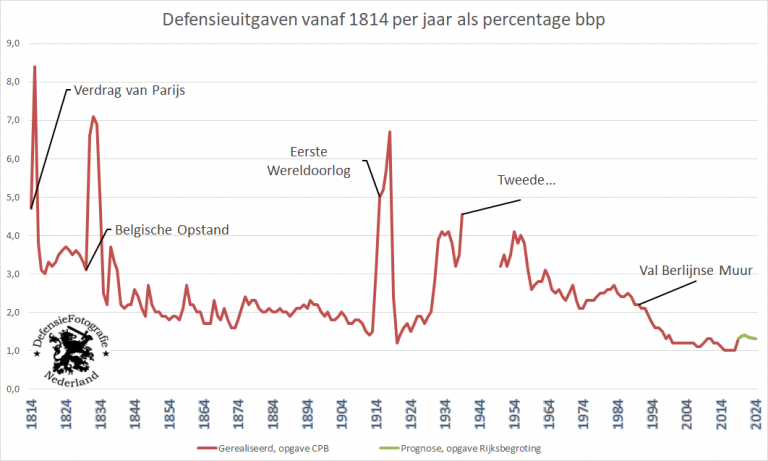Anchor Brewing Company's Closure: Impact On The Craft Beer Industry

Table of Contents
Anchor Brewing's Legacy and Historical Significance
Anchor Brewing's closure is more than just the loss of a brewery; it's the loss of a significant piece of American brewing history. Its influence on the craft beer industry and its place within San Francisco's cultural fabric are undeniable.
A Pioneer of the Craft Beer Revolution
Anchor Brewing played a pivotal role in igniting the craft beer revolution. Its impact is felt even today.
- Introduction of Anchor Steam Beer: Anchor Steam, brewed using a unique top-fermenting process in a lagering environment, became a flagship beer and a symbol of the craft brewing movement. This innovative approach laid the groundwork for countless other craft brewers.
- Impact on Brewing Techniques: Anchor championed the use of high-quality ingredients and traditional brewing methods, setting a new standard for craft beer quality. Many modern breweries owe a debt to Anchor's commitment to excellence.
- Early Adoption of Quality Ingredients: Anchor's focus on using the finest hops, barley, and other ingredients helped elevate the perception of craft beer, demonstrating that quality ingredients could lead to exceptional brews.
- Establishment of a Unique Brand Identity: The brewery cultivated a strong brand identity synonymous with San Francisco and quality, influencing the branding strategies of countless craft breweries that followed.
Cultural Icon of San Francisco
Beyond its brewing innovations, Anchor Brewing became deeply intertwined with San Francisco's identity.
- Association with the city's identity: Anchor became a symbol of San Francisco's independent spirit and rich brewing heritage. The brewery's location and its long history are synonymous with the city itself.
- Popularity amongst locals and tourists: Anchor Steam was, and remains, a beloved beer among locals and a must-try for tourists visiting the city. Its presence enhanced San Francisco's reputation as a vibrant cultural destination.
- Role in shaping the city's brewing scene: Anchor's success inspired countless other breweries to open in San Francisco, helping to establish the city as a hub of craft beer innovation.
Reasons Behind Anchor Brewing's Closure
While Anchor Brewing's legacy is secure, its closure highlights the challenges facing even the most established players in the craft beer industry. Several factors contributed to its downfall.
Financial Difficulties and Market Competition
The increasingly competitive craft beer market presented significant challenges for Anchor Brewing.
- Increased Production Costs: Rising costs of raw materials, labor, and distribution significantly impacted Anchor's profitability. The brewery struggled to maintain its margins in an increasingly price-sensitive market.
- Challenges in Distribution: Effectively distributing beer across a vast and competitive market proved increasingly difficult for Anchor, particularly when compared to larger breweries with extensive distribution networks.
- Impact of Changing Consumer Tastes: The rise of new craft beer styles, such as IPAs and sours, presented challenges for Anchor, which struggled to adapt to changing consumer preferences as quickly as some of its competitors.
- Struggles Against Larger Corporate Breweries: Anchor faced immense pressure from larger, more established breweries with greater resources and marketing power. This competition squeezed Anchor's market share.
Strategic Decisions and Ownership Changes
Ownership changes and strategic decisions also played a role in Anchor's decline.
- Acquisition by Sapporo: Anchor's acquisition by Sapporo Holdings, a Japanese beverage company, might have hindered its ability to adapt quickly to market changes and maintain its independent spirit.
- Impact of Corporate Strategies: Sapporo's corporate strategies may not have aligned with Anchor's original vision, leading to a loss of focus and potentially hindering innovation.
- Potential Mismanagement: Some speculate that managerial decisions and a lack of investment in crucial areas contributed to the brewery's financial difficulties.
- Lack of Investment in Marketing and Innovation: Insufficient investment in marketing and the development of new products might have hampered Anchor's ability to compete effectively in a dynamic market.
The Wider Impact on the Craft Beer Industry
Anchor Brewing's closure serves as a cautionary tale for the entire craft beer industry.
Concerns about Consolidation and the Future of Independent Breweries
The closure raises concerns about the growing consolidation within the craft beer sector.
- Impact on Small Breweries: Anchor's demise highlights the vulnerability of smaller, independent breweries in the face of intense competition from larger corporate breweries.
- Potential for Larger Corporate Acquisitions: The increasing number of large brewery acquisitions of smaller craft breweries raises concerns about the loss of independent brewing voices and the homogenization of the craft beer landscape.
- Increased Pressure on Pricing and Distribution: Smaller breweries face increased pressure to compete on price and distribution, potentially leading to lower profit margins and hindering growth.
- Loss of Brewing Diversity: The consolidation of the craft beer market threatens the diversity of brewing styles and flavors, as larger companies often favor mass-market appeal over unique or experimental brews.
Lessons Learned for the Craft Beer Industry
Anchor Brewing's closure offers valuable lessons for other craft breweries seeking long-term success.
- Importance of Strong Brand Identity and Marketing: Maintaining a strong brand identity and investing in effective marketing are critical for standing out in a crowded market.
- Need for Financial Stability and Efficient Operations: Craft breweries must prioritize financial stability and operational efficiency to withstand market fluctuations and competitive pressures.
- Adaptability to Changing Market Trends: Staying adaptable to changing consumer tastes and industry trends is paramount for long-term survival in the dynamic craft beer market.
- Value of Community Engagement: Cultivating strong relationships with the local community and fostering a sense of loyalty can provide a crucial buffer against challenges.
Conclusion
The closure of Anchor Brewing Company marks a significant moment in the craft beer industry. Its legacy as a pioneer and cultural icon is undeniable, but its demise highlights the challenges faced by even the most established breweries in a competitive and rapidly evolving market. The lessons learned from Anchor's experience are critical for the survival and continued growth of smaller, independent breweries.
Call to Action: Support your local breweries and celebrate the diversity and innovation of the craft beer industry. Let's learn from the Anchor Brewing closure and work together to ensure the future of independent craft brewing. Explore the world of craft beer and discover new favorites! Support your local Anchor Brewing alternatives!

Featured Posts
-
 Toenemende Steun Voor Expansie Nederlandse Defensie Industrie
May 18, 2025
Toenemende Steun Voor Expansie Nederlandse Defensie Industrie
May 18, 2025 -
 Een Op De Zes Nederlanders Blijft Vuurwerk Kopen Ondanks Dreigend Landelijk Verbod
May 18, 2025
Een Op De Zes Nederlanders Blijft Vuurwerk Kopen Ondanks Dreigend Landelijk Verbod
May 18, 2025 -
 Kanye West Claims Taylor Swift Blocked His Super Bowl Performance
May 18, 2025
Kanye West Claims Taylor Swift Blocked His Super Bowl Performance
May 18, 2025 -
 Confortos Dodgers Debut Can He Match Hernandezs Performance
May 18, 2025
Confortos Dodgers Debut Can He Match Hernandezs Performance
May 18, 2025 -
 Worldwide Reddit Outage Users Report Problems
May 18, 2025
Worldwide Reddit Outage Users Report Problems
May 18, 2025
Latest Posts
-
 Mlb History Riley Greenes Double Home Run Ninth Inning Performance
May 18, 2025
Mlb History Riley Greenes Double Home Run Ninth Inning Performance
May 18, 2025 -
 Detroit Tigers Riley Greene First Ever Two 9th Inning Home Runs
May 18, 2025
Detroit Tigers Riley Greene First Ever Two 9th Inning Home Runs
May 18, 2025 -
 Riley Greene Makes Mlb History With Unprecedented Ninth Inning Power
May 18, 2025
Riley Greene Makes Mlb History With Unprecedented Ninth Inning Power
May 18, 2025 -
 Dodgers Hope Conforto Emulates Hernandezs Positive Impact
May 18, 2025
Dodgers Hope Conforto Emulates Hernandezs Positive Impact
May 18, 2025 -
 Angels 1 0 Victory Fueled By Sorianos Dominant Performance
May 18, 2025
Angels 1 0 Victory Fueled By Sorianos Dominant Performance
May 18, 2025
